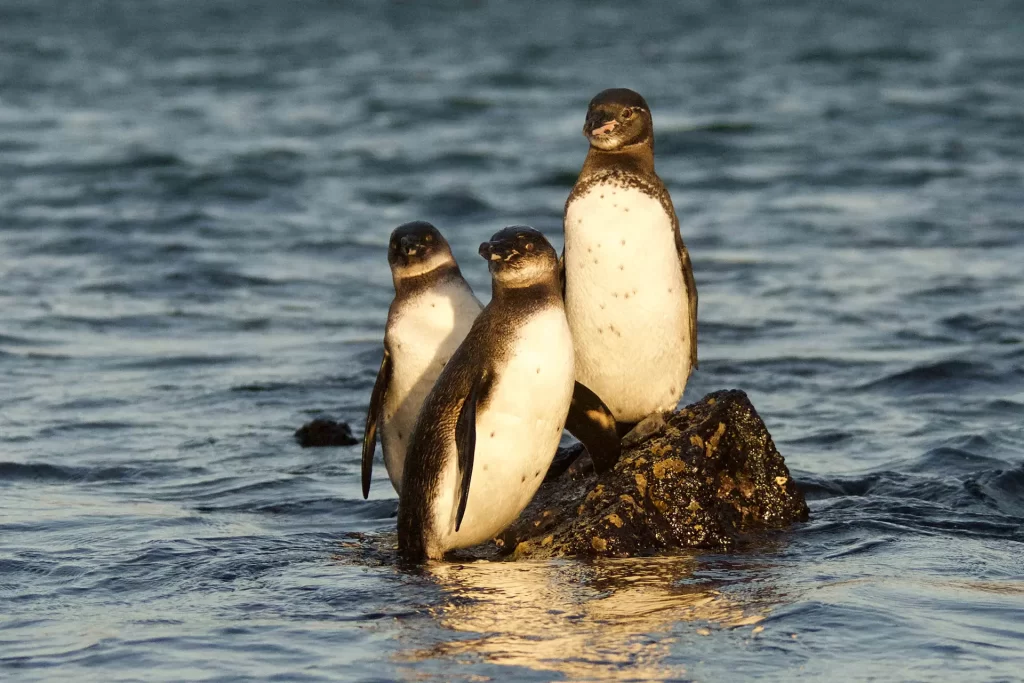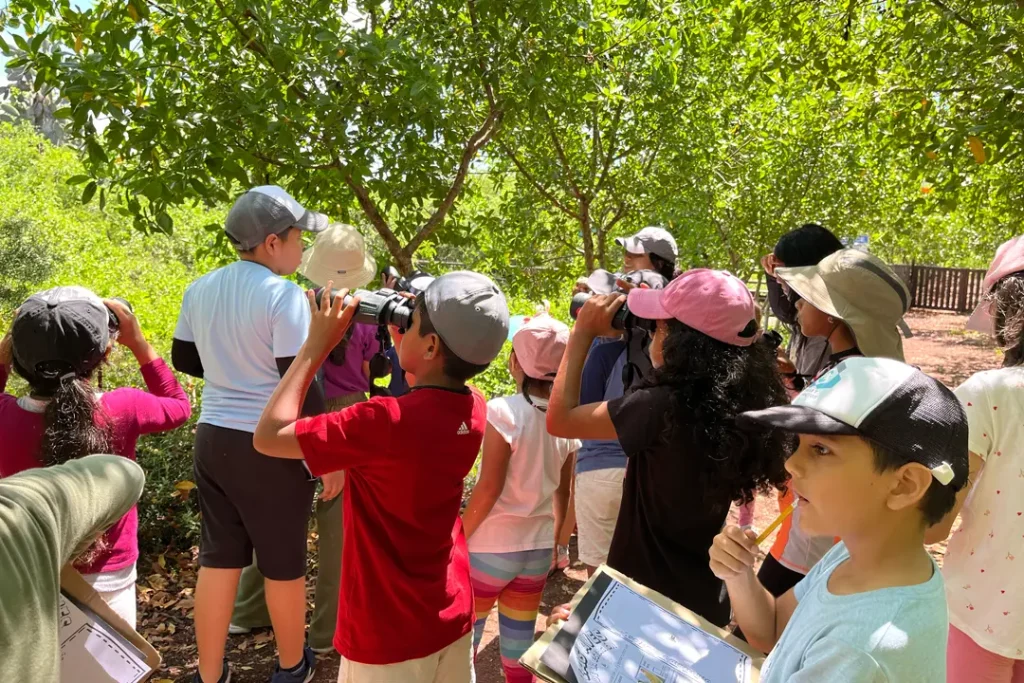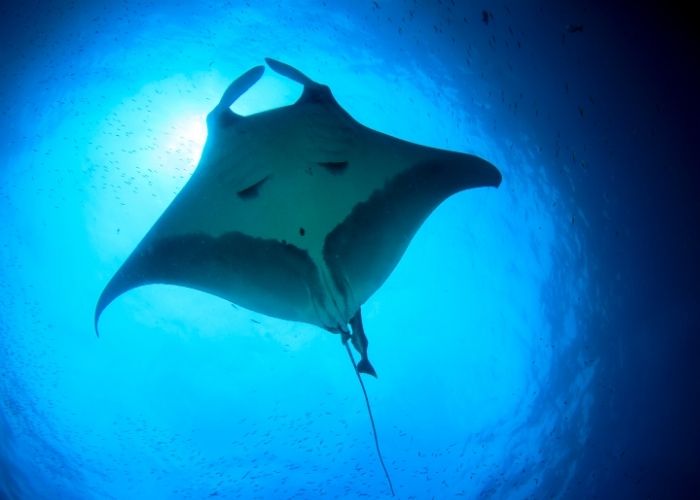World Penguin Day, celebrated on the 25th of April, is a day to promote awareness for these amazing birds. The Galapagos Penguin is one of the most remarkable. It’s scientific name is Spheniscus Mendiculus. This species can only be found in Galapagos, where it sometimes ranges north of equator.
The Galapagos Penguin is found primarily in the cool and nutrient-rich waters of the western archipelago. This area has abundant prey during upwellings, which are processes by which cold waters from the depths of the ocean rise to the surface. Galapagos penguins are primarily found on the rocky coasts of Fernandina Island and Isabela. They nest in the lava rock and feed near the shallow water.
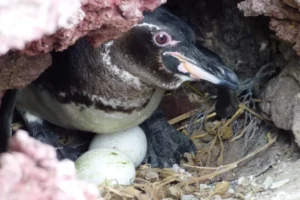
©Dee Boersma
The population of Galapagos Penguins which can live up to 20 years, fluctuates with ocean conditions. However, the trend seems to have slowed down since the 1970s. This is attributed to the increased frequency and severity of El Nino which destroys penguin food and the presence introduced predators like rats and cats that attack nesting Penguins.
International Union for Conservation of Nature has classified the Galapagos Penguin as Endangered. As intermediate consumers, these birds help regulate populations of aquatic species such as fish and crustaceans. They also serve as bioindicators for environmental health and provide valuable insight into the effects of oceanographic conditions and climatic conditions. This includes disturbances caused by phenomena such as el Nino.
Scientist Washington Tapia is our general director and he believes that “the conservation of the penguins are essential, not only because of their intrinsic value, but also due to their role in maintaining Galapagos’ ecological integrity.”
World Penguin Day is a great opportunity to highlight the importance of conservation efforts for the Galapagos Penguin as well as other penguins in the world. . These efforts, backed by the latest scientific research, not only protect these iconic species, but the entire marine eco-system. To address the challenges facing these birds, global collaboration and local commitment is essential. We reaffirm that we will continue to support actions which ensure the Galapagos Penguins a future in a changing environment.
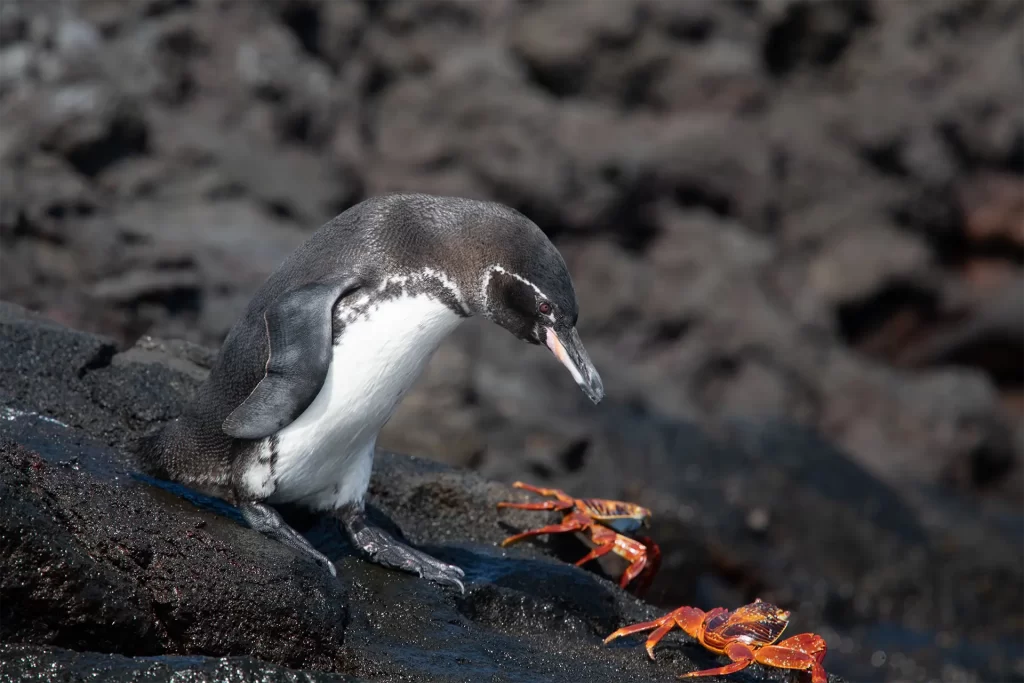
©KarenChiasson
